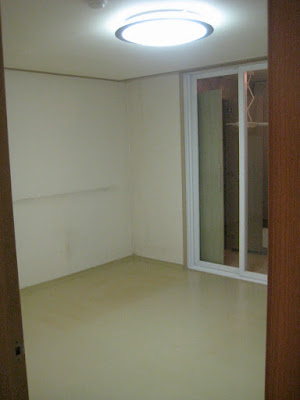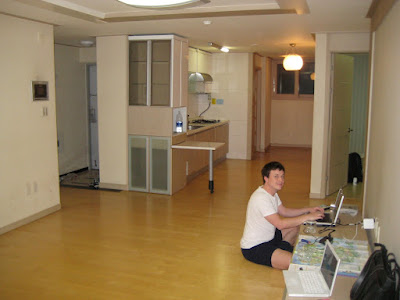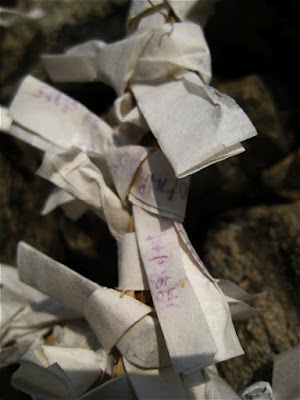Our co-teachers can read English very well, but can't communicate it well. (That is a problem for many Koreans). Since we are living together they loaded our luggage in my co-teacher's car and we rode with Derek's co-teacher. The trip was not bad, but definitely awkward at times. But we obviously communicated some, I know Derek's co-teacher is married with 2 daughters, has been teaching for 13 years and plays guitar in a band but overall I just looked out the window. We then met up with my co-teacher and he took me too see my school, while Derek and his co-teacher went to see his. I met one other teacher, who spoke great English and was the English co-teacher last year. I have my own classroom and students come to me everyday which is different than most other teachers. The downside is though, that on Thursdays and Fridays I go teach at 2 different schools on the other side of the island. Derek is teaching at another school as well, but doesn't know his schedule yet.
Derek said he met his entire school and everyone kept saying how handsome he is. Haha. We then met up at the apartment, and our co-teachers insisted on taking us out to eat. We went to a traditional Korean restaurant, and the food was good. But I was so stressed from the day I didn't eat much. Our teachers wanted to be able to talk with us so they invited another teacher who speaks English very well to join us. Again, he called Derek handsome and said I look like a princess! Haha, they all wear glasses here. Maybe that is why they keep saying that. After dinner, they said they wanted to take us to the Plus Mart (grocery store) to get some items to hold us over. We got bottled water (you can't drink the water here), fruit, crackers, cleaning stuff, 2 plates, cups, and utensils and toilet paper to hold us over until we know what items will be coming on Tuesday. And they helped us check out. I actually think the super market is going to be the easy. You can clearly tell what everything is, and there is a lot to choose from. I saw many western brands. Pringles, ritz, diet coke…
I think it is going to be a hard year, but I can really tell now that the co-teachers are trying to help us. They bent over backwards for us once we got here. And they are making an effort, I just think it's going to be hard with the language barrier. Or harder than I thought since they both don't speak English very well. Tomorrow they are taking us around the island and to get phones, so we'll see how tomorrow goes. In the meantime, we need to start learning Korean!


























